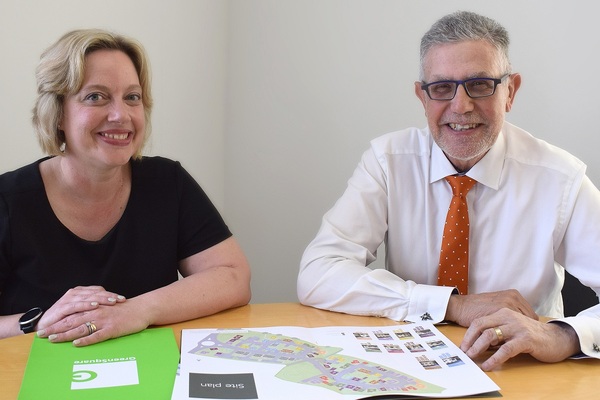You are viewing 1 of your 1 free articles

Election draws focus away from the real issues
The political vacuum in Stormont will continue to hamper the best efforts of housing associations, says Jennie Donald of NIFHA

My last column for Inside Housing was on the March Assembly elections; nearly two months on I expected to be turning to the latest policy issue or development in the sector as my subject.
The launch of a new housing association, for example, with Radius Housing, the merger of Fold and Helm, creating an organisation with 12,000 homes and aspirations to build 500 homes this year, investing £300m over the next five years, or perhaps discussing a new Northern Ireland Executive Programme for Government and vision for housing.
However, in the continuing absence of an Executive and Assembly, and the publication on Monday of an indicative direct rule budget by the secretary of state, I find myself returning to the impact of the political situation on housing.
“Outside of Northern Ireland there has been limited interest in this most recent breakdown of power sharing.”
Outside of Northern Ireland, and possibly even within it, there has been limited interest in this most recent breakdown of power sharing and the absence of government, whether that is devolved or direct rule. And to be fair the civil service has once again taken up the reins, ensuing that on the face of it business continues as usual.
However, that administration is really just about maintaining the status quo and funding that has already been agreed. The civil service cannot take policy decisions; without ministers, an Executive and the Assembly decisions on public policy and services – large and small – are being pushed further into the long grass. What we really have is stasis quo. And though there has been a sense that Stormont has failed to deliver, focusing on populist decisions in favour of difficult ones, the lack of government is highlighting just how critical it actually is.
READ MORE ABOUT HOUSING IN NORTHERN IRELAND

NI housing unfitness levels at record low
Northern Ireland Supporting People budget cut amid Stormont crisis
NI housing association stock up 40% in five years
NI sector set to start new financial year with no budget made
Northern Ireland associations upping development amid uncertainty
Politicians across all parties and successive housing ministers have recognised the financial and social value of the Supporting People programme and protected its budget. That programme now faces a 5% reduction in funding for accommodation-based services.
The Northern Ireland Executive strongly endorsed the need to reverse the reclassification of housing associations and consulted on its proposals earlier this year. Work cannot begin on the legislation required to enact those proposals without the approval of the Executive.
And then there are the areas that our politicians haven’t even begun discussing in detail yet.
Modelling work carried out by NIFHA suggests that the introduction of the Local Housing Allowance (LHA) cap in Northern Ireland will have a significant impact on existing tenants and the ability of associations to develop new homes. With among the lowest LHA levels in the UK, 28% of housing association general needs properties had rents above the LHA cap in 2016/17. By 2019/20, factoring in modest rent increases, that could rise to 41%. Under-35s and those living in rural areas will be the most affected. New development would be increasingly unviable outside of the Greater Belfast area.
Social security is a devolved policy area, therefore a Northern Ireland Executive will have to take the decision whether to introduce the LHA cap or find the means to offset the savings in housing benefit.
The new funding model for supported housing is a similar and related issue. We know that the LHA cap would be devastating for supported housing and a Northern Ireland Executive will need to develop a new approach in line with that proposed in Great Britain. Conversations about what that new funding model will look like need to start now.
The current uncertainty helps neither tenants nor housing associations to plan for the possibility of significant cuts to housing benefit and rental income.
“Further austerity is undoubtedly coming and difficult decisions will have to be made.”
The indicative budget released by the secretary of state makes clear that the financial position for Northern Ireland is not a positive one. A number of departments, including education, will see budget cuts. Health, which needs a 5% increase in funding just to stand still, will get 3%.
While the Department for Communities seems on the surface to have escaped the cuts, it is something of a false reading – the uplift in funding relates to the welfare reform mitigations agreed until 2020. Take these out and this budget, which includes funding for new social and affordable housing and Supporting People, will almost certainly see a reduction in its financial allocation.
Further austerity is undoubtedly coming and difficult decisions will have to be made. We face another two months without government and the focus is firmly on the general election. Meanwhile many vital policy decisions will continue to drift. Housing associations remain focused on delivery but the political vacuum will undoubtedly hamper our best efforts to provide new homes, services and support for those who need them, particularly for individuals and households with more complex needs.
Jennie Donald, deputy chief executive, Northern Ireland Federation of Housing Associations (NIFHA)








